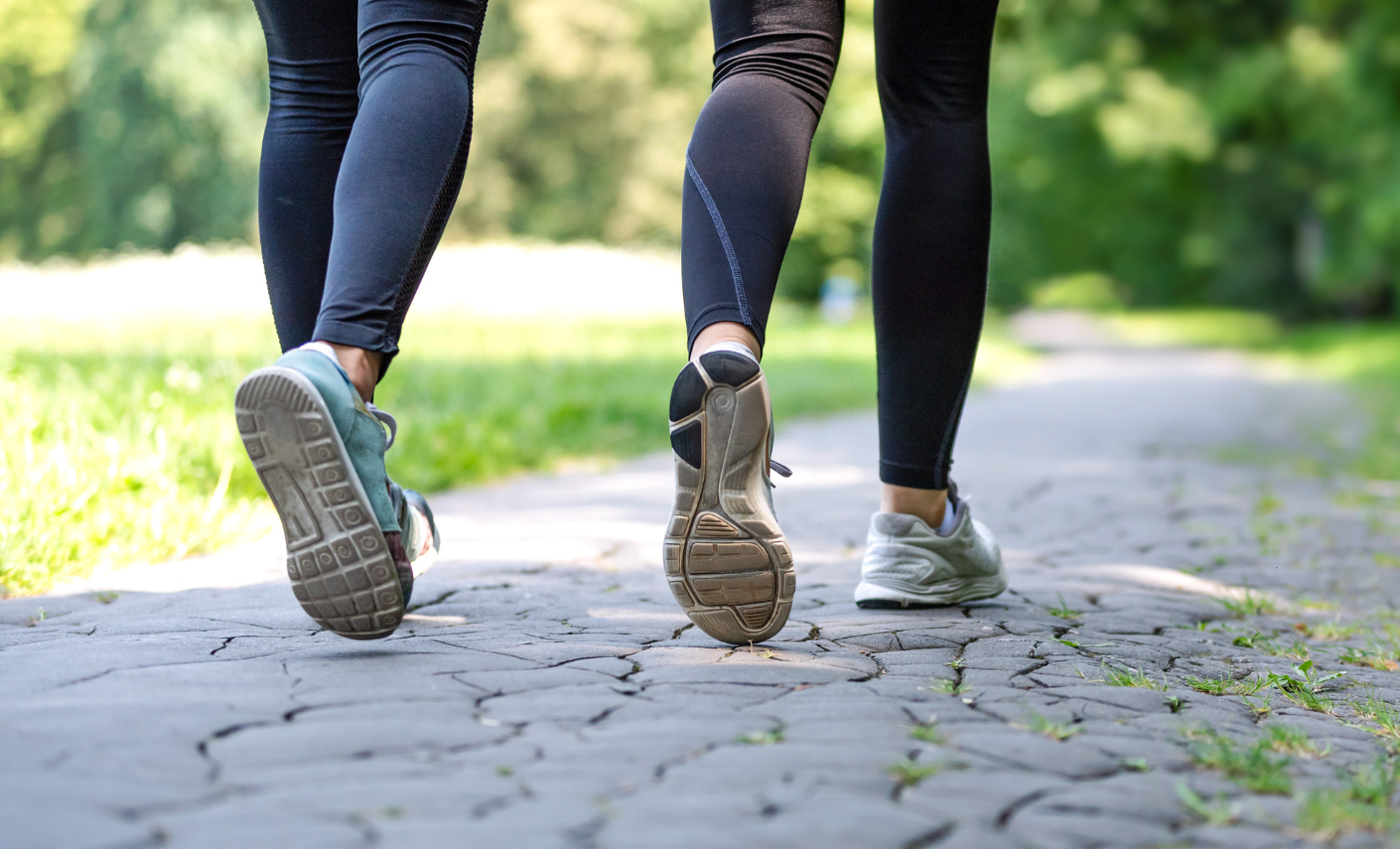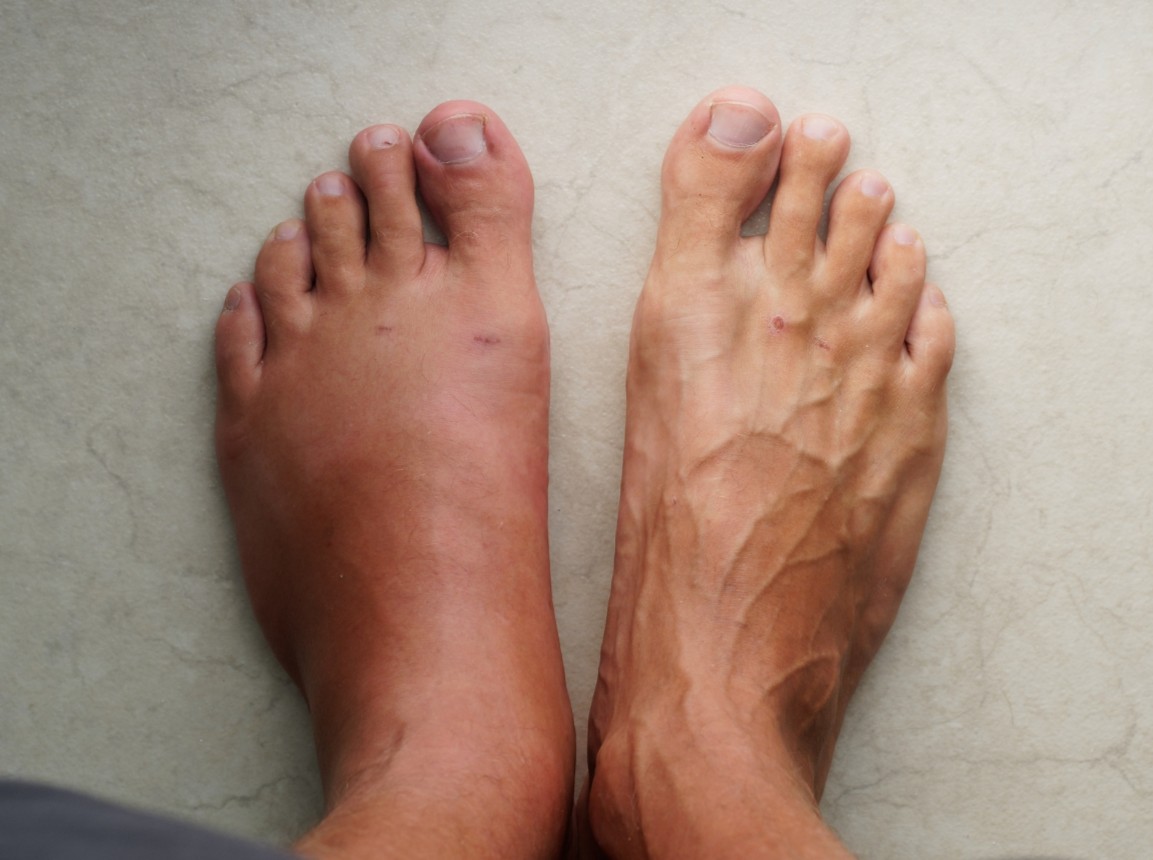

Tingling or numbness in your feet and legs during or after exercise can be an odd sensation. If you’re prone to experiencing it, the
most common reasons are related to pressure on nerves or problems with your circulation. For some people, it can also be a sign of an
underlying condition. Today, our podiatrists are giving you the lowdown on why you may be getting tingling or numbness in your feet and legs
during or after exercise, whether or not you should be concerned, and what you can do to help.
The most common reason for the tingling that our podiatrists see is nerve compression. When you exercise, especially in activities like
running, cycling, or using a stationary machine, your feet may remain in a fixed position for extended periods, which can sometimes lead to
restricted blood flow or compressed nerves. The result is that you experience a pins-and-needles feeling or numbness. We’ve seen this
several times in people who use stair climbers or elliptical machines because of the repeated pressure on the forefoot.
Improperly fitting shoes can also play a significant role. Shoes that are too tight can pinch the nerves or restrict circulation, while
shoes that don't provide enough support can lead to problems like metatarsalgia), which causes tingling in the ball of the foot. It’s
no wonder we put so much emphasis on wearing well-fitting shoes!
Tarsal tunnel syndrome is another condition linked to tingling. Similar to carpal tunnel in the wrist, this occurs when a nerve called the
posterior tibial nerve in your ankle is compressed, often causing tingling in the foot. This can be triggered by activities that put
pressure on your ankle or foot , such as sports involving running or jumping or rapid changes in direction. Standing for long periods,
especially on hard surfaces, can also contribute by continuously applying pressure to the area around the tarsal tunnel, leading to
inflammation or swelling that compresses the nerve.
Tingling in your feet or legs during or after exercise can sometimes be connected to underlying health conditions that affect your nerves or
blood flow. A common example is diabetic neuropathy, which happens when high blood sugar levels in people with diabetes cause nerve damage
over time. This nerve damage often affects the feet and legs first and can result in tingling, numbness, or even pain, especially when
you’re active and putting extra pressure on your feet.
For those with diabetes, managing blood sugar levels carefully is crucial to prevent or slow down this type of nerve damage. If you
experience these symptoms frequently, it’s important to talk to your doctor, as they can suggest treatments like better blood sugar
management, medications, or even physical therapy to help manage the discomfort.
Another potential cause of tingling in your legs and feet is Peripheral Artery Disease (PAD), a condition where your arteries become
narrowed, reducing blood flow to your legs. This lack of proper circulation can cause your legs and feet to feel numb, tingly, or painful,
especially after walking or exercising. Since your leg muscles need more oxygen during physical activity, a restriction in blood flow from
PAD makes it harder for your muscles to function correctly, leading to these sensations.
Unlike diabetic neuropathy, PAD is a more serious condition that requires medical attention because, if left untreated, it can lead to more
severe complications such as infections, sores, or even limb loss in extreme cases. Early treatment, such as medications or lifestyle
changes, can help improve blood flow and reduce symptoms.
Fortunately, there are steps you can take to reduce or prevent tingling in your feet and legs during exercise:
Honestly, in most cases, no. It is a temporary and harmless discomfort—especially if it goes away once you finish exercising. That said,
there are some signs that it could be more serious that you must know. If the tingling persists, worsens, or is accompanied by other
symptoms like dizziness, muscle weakness, or pain, it could signal a more serious issue like nerve damage or circulatory problems.
Another condition it could be is acute compartment syndrome, which is classified as a medical emergency and where you’ll feel intense growing pressure in your leg. Read more about it here.
If you experience tingling or numbness during or after exercise that seems out of the ordinary, we’re here to help. Our podiatry clinic is located within the One Health building in Remuera. You can book your appointment with us online here or by calling 09 523 2333.

We’ve all had those days — you come home after hours on your feet, kick off your shoes, and notice your ankles look puffier than usual.
Swelling in the feet, ankles, or legs (known medically as edema) isn’t always a reason to panic. It can be as simple as a
salty lunch or a long flight.
But what if it’s happening more often — or seems to be getting worse? Swelling can sometimes be a sign of something more serious. Here’s
what could be going on and when to check in with your doctor.
.jpg)
Every year on October 8th, the world celebrates International Podiatry Day - a day dedicated to
raising awareness about foot health and the vital role that podiatrists play in our overall well-being.
Keeping your family on their feet and helping them to walk, run, play and exceed their goals is why we love getting up in the morning.
Ground Floor, One Health Building
122 Remuera Rd, Remuera
Auckland 1050, New Zealand
| MON - FRI | 7:30am – 6:30pm |
| SAT | 8:30am – 4:30pm |
| SUN | Some availability |
Make an Appointment
Online Schedule
Our virtual receptionist is available 24/7 to help with general questions, booking requests, and clinic information, even when our team is busy, or it's after hours.
Whether you're calling us or using our website, you'll get fast assistance any time of day. And if your query needs a personal touch, a member of our team will follow up as soon as possible.
If you’d like to see a podiatrist who speaks your preferred language, just give us a call and we’ll help you book.